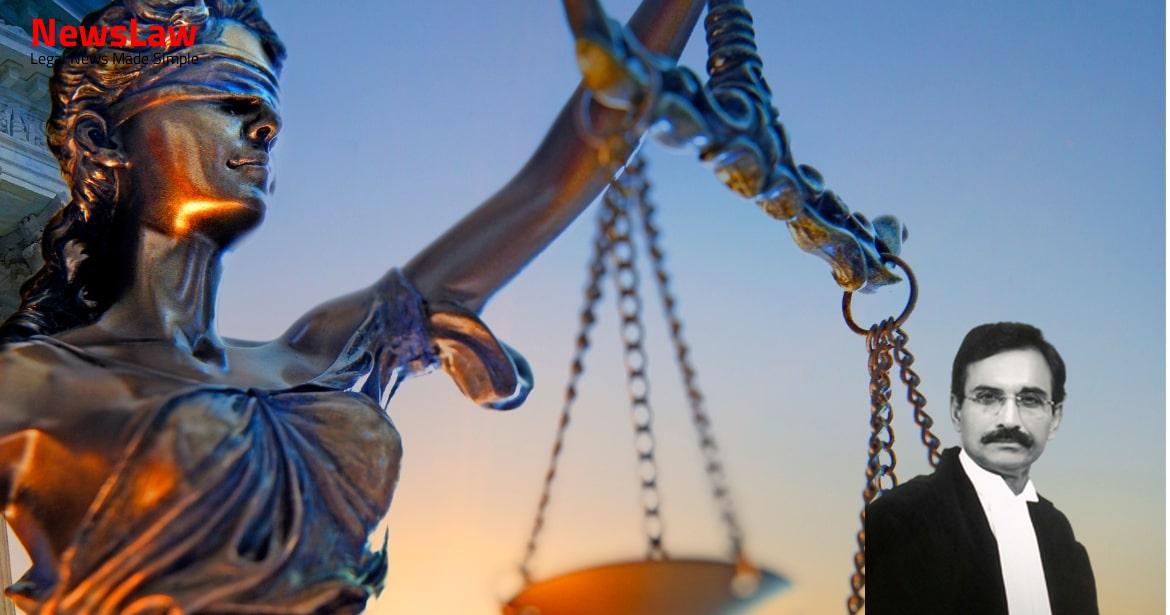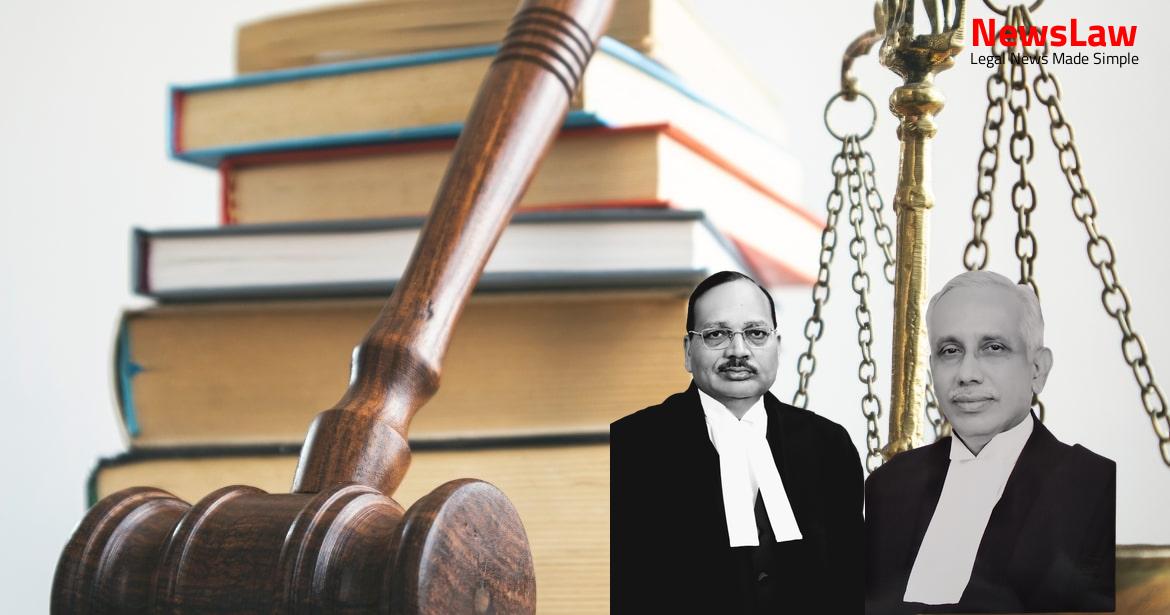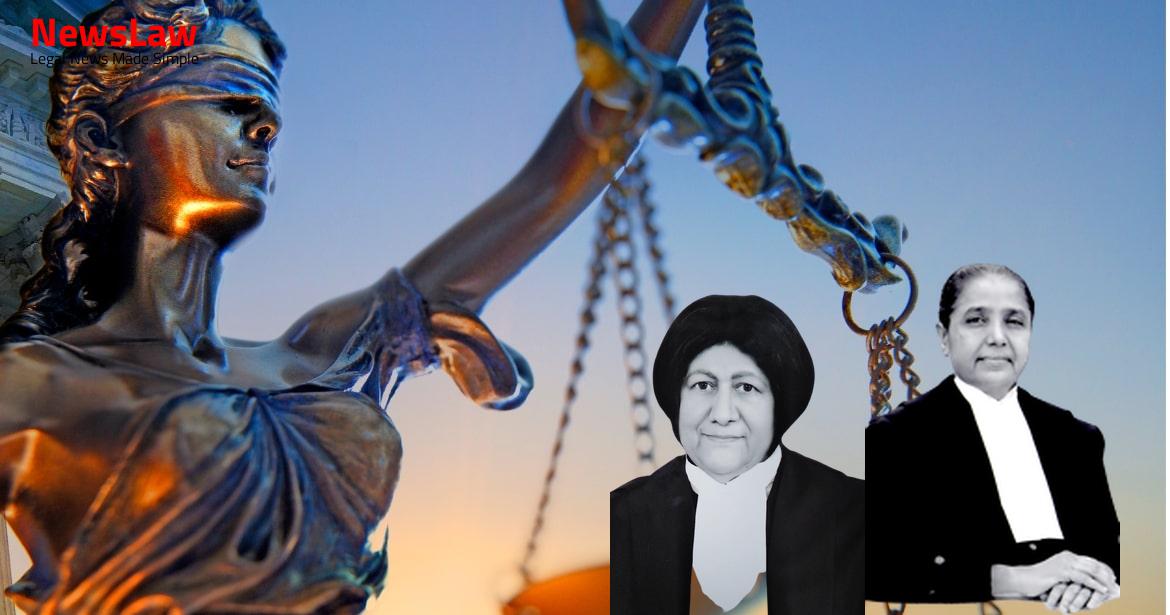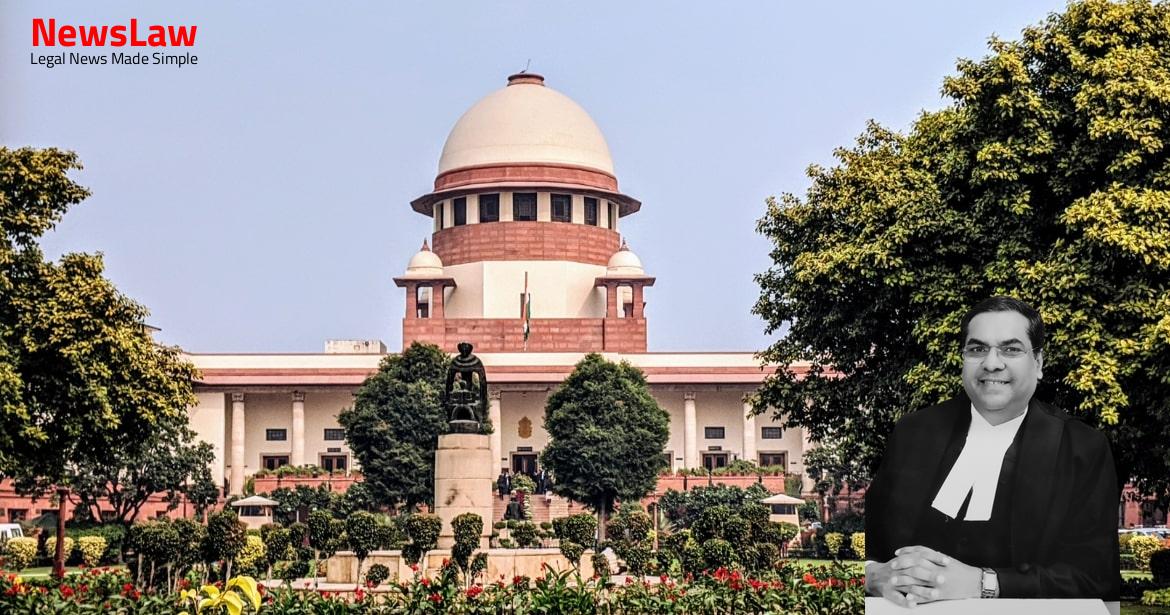Explore the intricacies of a significant legal case where the court’s analysis focused on the Company’s non-conviction and the subsequent order for a re-trial. The decision sheds light on essential legal principles and the implications of a retrial without the Company’s conviction.
Facts
- Complaint filed by Shri H.D. Dubey, Inspector, Food and Health, based on a sample taken on 7.2.1989 of Dalda Vanaspati Khajoor Brand Ghee manufactured by the Company.
- Appeals challenge an order passed by the High Court of Madhya Pradesh, Jabalpur on 9.1.2020, where the revision filed by Shri Nirmal Sen, appellant/Nominated Officer of Hindustan Unilever Limited, was allowed but remitted back to the trial court to re-examine the evidence.
- Proceedings previously decided in the case ‘R. Banerjee & Ors. v. H.D. Dubey & Ors.’ where it was found that the sample of Vanaspati Ghee taken from the company’s godown was adulterated with a melting point higher than normal range.
- Initial complaint was against the Directors of the Company and Lipton India Limited.
- The Company represented by the appellant Nirmal Sen was involved in proceedings under the Food Adulteration Act, 1954.
- The case continued even after the repeal of the 1954 Act and the enactment of the Food Safety and Standards Act, 2006.
- The trial court convicted the Nominated Officer (Nirmal Sen) under the old Act.
- An error was observed in the judgments of both the trial and appellate courts regarding the representation of the Company during the trial.
- The trial court absolved the Directors of the Company but ordered continued prosecution against the appellant Nirmal Sen.
- The Company was not explicitly convicted of any offense.
- In an appeal, the conviction of the Nominated Officer was upheld while other accused individuals were acquitted.
- The High Court noted that if the Company is acquitted, the benefit extends to the appellant Nominated Officer.
- The conviction and sentence of the appellant were set aside, and the case was sent back to the trial court for a fresh judgment.
Also Read: C.A. No.-003966-003966 / 2020
Arguments
- Violation attracted a sentence of not less than six months and up to 3 years and a fine of Rs.1,000/- under Section 16(1)(a)(i) of the repealed Act.
- Under the 2006 Act, punishment for adulteration related to higher melting point is fine of Rs.5 lakhs under Section 3(1)(zx) and Rs.1 lakh under Section 3(1)(i).
- Appellant argued violation of Section 2(ia)(m) read with Section 7(i) of the Act and cited precedent to support that only fine is contemplated under the 2006 Act post-repeal.
- Benefits of the 2006 Act, being more favorable to the accused, should apply to the case.
- Reliance was placed on judgments in T. Barai v. Henry Ah Hoe & Anr., Nemi Chand and Trilok Chand v. State of Himachal Pradesh.
- Argument raised by Mr. Siddharth Luthra, senior counsel for the appellant-Company: The Company was not convicted by the trial court.
- Mr. Luthra argued that the High Court could not have ordered a retrial without the Company being convicted and without providing notice for a hearing.
Also Read: Critical Analysis of Circumstantial Evidence in Arson Case
Analysis
- Complaints were filed under the Income Tax Act, 1922 and later under Section 277 of the Income Tax Act of 1961.
- Revised returns were filed after the enactment of the Income Tax Act, 1961.
- The High Court’s decision to remand the matter to the trial court after over 30 years was questioned.
- The order of remand without giving an opportunity for hearing was deemed to be in contravention of Section 401(2) of the Code of Criminal Procedure, 1973.
- The punishments imposed under the repealed Act were protected under Section 97 of the 2006 Act.
- No benefit under the 2006 Act could be taken for prosecution and punishment under the Act.
- The Trilok Chand case was the only one to benefit from the 2006 Act.
- The order in the Trilok Chand case was considered based on its own facts.
- The remand order against the Company was deemed unsustainable without providing an opportunity for hearing as required by Section 401(2) of the Code.
- Section 97 of the 2006 Act came into force on 5.8.2011.
- Section 6 of the General Clauses Act, 1897 defines the effect of repeal.
- Repeal of a statute does not affect any investigation, legal proceeding, or remedy unless a different intention appears.
- Legal proceedings, investigations, and remedies can continue as if the Repealing Act or Regulation had not been passed.
- Section 401(2) of the Code is also referenced in the context.
- Section 141 of the NI Act holds every person in charge of the company responsible for offences committed by the company.
- Section 17 of the Act states that the nominated person responsible for the company’s conduct of business shall be guilty of offences.
- Penalty proceedings were initiated and levied under the 1961 Act.
- Judgment in T. Barai was based on an amendment in the Act with the insertion of Section 16A.
- Judgment in Nemi Chand was a result of an amendment in the Act.
- Aneeta Hada case delves into the conviction of Directors in the absence of the Company under Section 138 of the Negotiable Instruments Act and Information Technology Act.
- The 2006 Act’s repeal and saving clause ensures continuation of penalties and prosecutions as if the Act had not been passed.
- State of Punjab v. Mohar Singh addressed the continuation of complaints under the 1922 Act.
- The complaints under the 1922 Act remain unaffected by subsequent legislation.
- The Nominated Person cannot be convicted in the absence of the Company being convicted.
- The Company was not convicted by the trial court.
- The appellant/Nominated Person has been facing trial for over 30 years.
- The order of remand to the trial court to fill up the lacuna is considered unfair by the High Court.
Also Read: Analysis of Commencement Date in Gratuity Act Amendment Case
Decision
- The appeals were allowed and the order passed by the High Court was set aside.
- As a result, the complaint was dismissed.
Case Title: HINDUSTAN UNILEVER LIMITED Vs. THE STATE OF MADHYA PRADESH (2020 INSC 634)
Case Number: Crl.A. No.-000715-000715 / 2020



